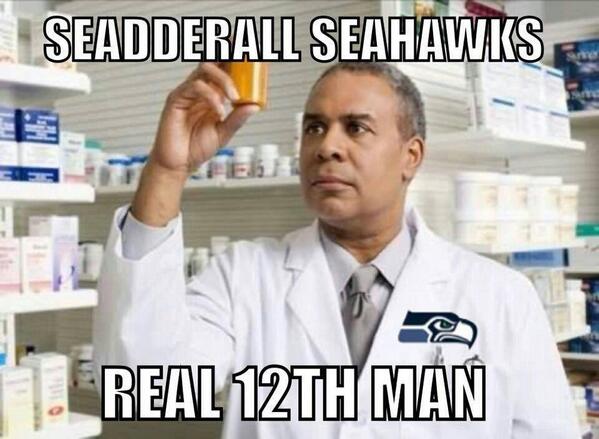- Joined
- Jan 25, 2015
- Messages
- 1
- Reaction score
- 0
I'd like to talk about adderall, briefly from an admissions standpoint, and then in depth about ethics. This account is a throwaway for obvious reasons but i'll post on it for this discussion. Also to reiterate I do not want the focus to be on the admissions question, mostly on ethics, but it would be nice to have the admissions topic addressed too. And to clarify, I DO HAVE a prescription for the drug, just so nobody delves into that.
So first:
Would it look suspicious on a medical school application/interview/etc. if an applicant acquired an adderall prescription at age 18/19/20, and would an adcom even have any way of knowing this information?
Now the main part of this thread:
How do you feel about people taking adderall to boost there performance in class? This includes people with legitimate prescriptions, people with illegitimate prescriptions, and those without prescriptions. Personally I feel all three of those cases the person is doing the exact same thing, but perhaps one is more deserving of the ability to do it than the others (I really do feel that someone with a legitimate prescription does deserve this advantage without question, but at the same time I feel they are getting an unnatural, yet not unfair for them at least, advantage). We all know that CNS stimulants ABSOLUTELY increase grades; I know personally that they may make my papers come out like ****, but I can learn a WHOLE LOT of math or science very efficiently and effectively while under its effects. All people will have different experiences but I feel most people will be able to use it to improve their grades significantly if they figure out how it works for them.
So to pose the question I would personally like to see discussed: How do you feel about people taking adderall without a prescription or with a prescription but without ADHD?
I know personally that adderall makes my life significantly better even besides grade improvement. I have used it to catch up on work (non-academic in this example), which allowed me to accomplish more and overall improve my quality of life by not getting stuck on some tasks. Also, it makes me much more social in a VERY good way; for someone who struggles with all forms of relationships, being socially savvy is something that I am willing to take a controlled substance to accomplish. And to be honest, I've actually never used adderall in a way that would be against academic integrity policies (to name a few examples, i've never taken/studied for a test under its effects, never written anything I've handed in under it's effects, never done a problem set, etc. under it's effects). But if it were considered acceptable to read a textbook for 4 hours straight while high, well yeah I like to do that because I enjoy it more and the time spent reading is more effective.
So please share your opinions and feel free to tear apart anything I've stated.
So first:
Would it look suspicious on a medical school application/interview/etc. if an applicant acquired an adderall prescription at age 18/19/20, and would an adcom even have any way of knowing this information?
Now the main part of this thread:
How do you feel about people taking adderall to boost there performance in class? This includes people with legitimate prescriptions, people with illegitimate prescriptions, and those without prescriptions. Personally I feel all three of those cases the person is doing the exact same thing, but perhaps one is more deserving of the ability to do it than the others (I really do feel that someone with a legitimate prescription does deserve this advantage without question, but at the same time I feel they are getting an unnatural, yet not unfair for them at least, advantage). We all know that CNS stimulants ABSOLUTELY increase grades; I know personally that they may make my papers come out like ****, but I can learn a WHOLE LOT of math or science very efficiently and effectively while under its effects. All people will have different experiences but I feel most people will be able to use it to improve their grades significantly if they figure out how it works for them.
So to pose the question I would personally like to see discussed: How do you feel about people taking adderall without a prescription or with a prescription but without ADHD?
I know personally that adderall makes my life significantly better even besides grade improvement. I have used it to catch up on work (non-academic in this example), which allowed me to accomplish more and overall improve my quality of life by not getting stuck on some tasks. Also, it makes me much more social in a VERY good way; for someone who struggles with all forms of relationships, being socially savvy is something that I am willing to take a controlled substance to accomplish. And to be honest, I've actually never used adderall in a way that would be against academic integrity policies (to name a few examples, i've never taken/studied for a test under its effects, never written anything I've handed in under it's effects, never done a problem set, etc. under it's effects). But if it were considered acceptable to read a textbook for 4 hours straight while high, well yeah I like to do that because I enjoy it more and the time spent reading is more effective.
So please share your opinions and feel free to tear apart anything I've stated.


